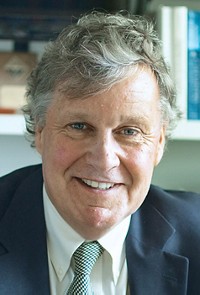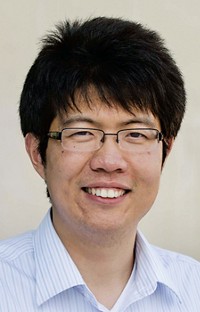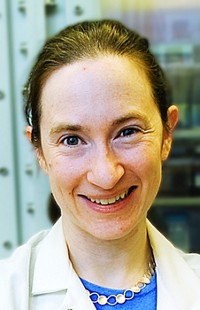Advertisement
Grab your lab coat. Let's get started
Welcome!
Welcome!
Create an account below to get 6 C&EN articles per month, receive newsletters and more - all free.
It seems this is your first time logging in online. Please enter the following information to continue.
As an ACS member you automatically get access to this site. All we need is few more details to create your reading experience.
Not you? Sign in with a different account.
Not you? Sign in with a different account.
ERROR 1
ERROR 1
ERROR 2
ERROR 2
ERROR 2
ERROR 2
ERROR 2
Password and Confirm password must match.
If you have an ACS member number, please enter it here so we can link this account to your membership. (optional)
ERROR 2
ACS values your privacy. By submitting your information, you are gaining access to C&EN and subscribing to our weekly newsletter. We use the information you provide to make your reading experience better, and we will never sell your data to third party members.
Synthesis
2014 Arthur C. Cope Scholar Awards: Olafs Daugulis
by Arlene Goldberg-Gist
March 17, 2014
| A version of this story appeared in
Volume 92, Issue 11
For Olafs Daugulis, 2013 was a banner year among several decades of good professional karma—and much highly regarded research and respect from colleagues and students alike.
The associate professor of chemistry at the University of Houston is not just a Cope Scholar awardee, he is also the recipient of the 2013 Norman Hackerman Award in Chemical Research presented by the Welch Foundation. Based in Houston, the foundation is “the best thing that has happened in Texas to chemistry,” Daugulis says. He says the foundation replaces dwindling federal support with National Science Foundation-sized grants quickly; he received a grant in his second year at Houston. The foundation also made him the star of an eight-minute video that explains his research and honors his intellect and dedication to teaching (http://www.youtube.com/watch?v=CGDtvZ6IrYU).
Chemistry professor Robert G. Bergman of the University of California, Berkeley, sees Daugulis as “a leader and innovator in synthetic organometallic and organic chemistry, particularly in the area of carbon-hydrogen bond functionalization.” The award winner’s research is aimed specifically at the development of synthetically useful transformations involving transition-metal-mediated C–H bond activation reactions, according to Bergman, who does research in the same field. For example, “Olafs has used palladium-based catalysis to couple β-halosubstituted alkenes with arenes, arylate unactivated primary and secondary sp3 C–H bonds, and ortho-arylate arenes with directing groups.”
Michael P. Doyle, University of Maryland professor and chair of the department of chemistry and biochemistry, who knows Olafs both personally and professionally, says that “Olafs has a drive to accomplish feats that have not been previously performed. For example, when he first stated that he could replace hydrogen in an aromatic ring with carbon to form a carbon-carbon bond, many thought that this was too far from the realm of possibility to receive serious attention. When he accomplished this feat, others have copied him.”
Born in Riga, Latvia, Daugulis graduated in 1991 with a degree in chemical engineering from Riga Technical University, where he remained as a research assistant until 1993. The University of Wisconsin, Madison, was his next educational home; he received a Ph.D. in chemistry in 1999 under Edwin Vedejs. From 2000–03, Daugulis worked as a postdoctoral associate with Maurice Brookhart at the University of North Carolina, Chapel Hill.
Daugulis, 45, traces his love of chemistry to his high school years “making explosions and pyrotechnics. The interest in chemistry,” he says, “came when I realized that to produce more efficient colored flames and louder bangs, I actually needed to understand the chemistry that is used for the pyrotechnics. A lot of other professors, including both of my advisers, have confessed that their interest in chemistry started in a similar way. Unfortunately, with the increase in litigations and the overall political climate in the country, engaging in such ‘cool’ and exciting activities has become next to impossible.”
Daugulis admits that his decision to work at a university was “somewhat random,” as he was considering also interviewing for chemical companies. However, the University of Houston offered him a position, and his students—both graduate and undergraduate—are the beneficiaries of his dedication as a mentor and teacher.
In his limited free time, Daugulis enjoys traveling, hiking—and drinking beer.






Join the conversation
Contact the reporter
Submit a Letter to the Editor for publication
Engage with us on Twitter